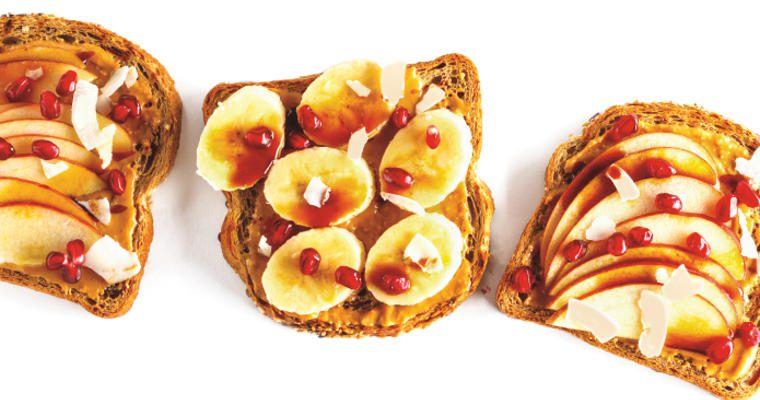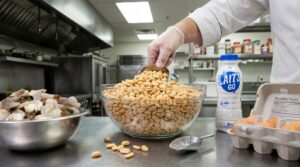Student athletes focus on nutrition for a variety of reasons—to reduce fat mass, gain muscle or properly fueling for an event. Proper nutrition, including eating the right food at the right time, is critical to enable student athletes to train, compete, recover and heal.
The average college student requires between 1,500-3,000 calories daily; however, some athletes’ caloric needs exceed 4,000. If your school has a sports nutrition program, it’s a good idea for each athlete to have an individualized program. If that’s not possible, it’s important to understand how proper fueling and nutrition factor into the continued growth and development of a student’s muscles, bones and brain.
Every meal should be part of the training regimen. General guidelines recommend each meal contain whole grains, lean protein, fruits, vegetables, healthy fat and fluids. During hard training days, calorie and carbohydrate intake should be at their highest, including adequate protein, fruits and vegetables. On lighter training days, the calorie and carbohydrate needs are reduced, but adequate protein, fruits and vegetables are necessary.
Athletes should focus on proper fueling and timing before, during and after activity to perform their best and recover quickly.
Before: Gearing up to compete
The meal or snack should be low in fat and fiber, but moderate in protein and high in carbohydrates. This minimizes gastrointestinal distress and maximizes energy. Carbohydrates are important before activity to top off glycogen the body uses for fuel.
A good recommendation is to consume about 1 gram of carbohydrates per kilogram of body weight one hour before exercise, 2 grams per kilogram of body weight two hours before, etc. The amount depends on conditions, including daily energy expenditure, type of sport, athlete gender and environmental conditions. At least four hours before activity, athletes should also drink water or a sports drink—2-3 milliliters per pound of body weight. Some ideal meal or snack options include:
- A piece of fruit
- Greek yogurt
- Whole-grain bread or bagel
- Whole-grain cereal and milk
- Chicken, brown rice, vegetables
During: Staying fueled during performance
During activity, it’s vital to replace lost fluid for hydration and consume carbohydrates to maintain blood glucose levels for energy. This is especially important for activities over an hour.
The recommended amount of carbohydrates is 30-60 grams per hour. Commonly, a sports drink will meet hydration and carbohydrate needs. If an athlete prefers food, here are good options:
- Banana
- Raisins
- Granola bar
- Dried fruit
- Sports gel or gummies
After: Making a quick recovery
Post-activity, the goal is to replace glycogen stores and build or repair muscle tissue. After a long or intense activity, athletes should aim for carbohydrate intake of 0.75-1.5 grams per kilogram of body weight within the first hour of exercise and every 2 hours for 4-6 hours after. They also should aim for 7-20 grams of protein within the first hour. If a meal isn’t immediately available, a snack is critical. Options include:
- Chocolate milk
- Fruit, yogurt smoothie
- Apple or banana with nut butter
- Trail mix with nuts and dried fruit
Recovery meal ideas include:
- Eggs, wheat toast, berries
- Lean meat, brown rice, vegetables
- Whole-wheat pasta with marinara sauce and ground turkey or beef, side salad
- Grilled chicken salad with a whole-grain roll
Fueling stations can provide hydration and nutrition right away. Grab-and-go items such as trail mix, fruit, protein bars, jerky, chocolate milk and sports drinks are great options. Consider a fueling station in weight rooms, outside the gym and outside locker rooms.
Educating student athletes on nutrition and how it affects performance is essential. A team meal is a good moment to promote smart food choices. It’s also a good time to reinforce the importance of individualized recommendations from a registered dietitian or health professional.











